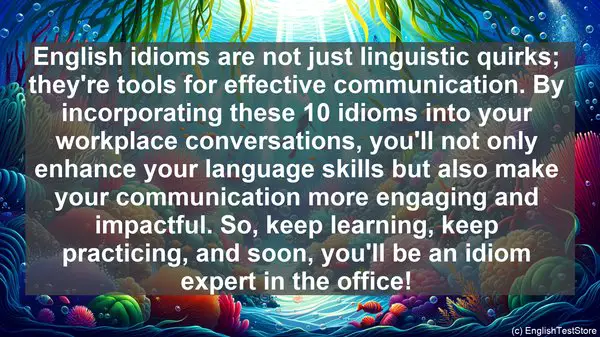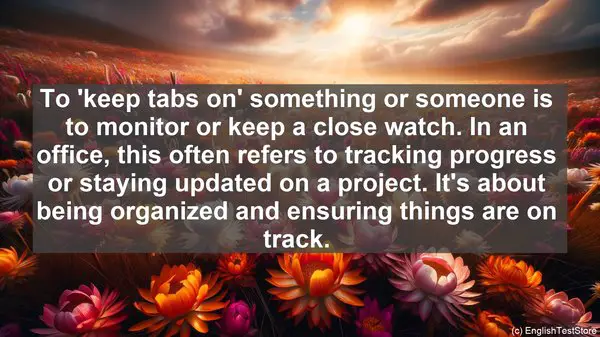Introduction: The Power of Idioms in Communication
As an operations management analyst, effective communication is key to success. And what better way to spice up your conversations than with idioms? Idioms are not just phrases; they carry cultural nuances and convey complex ideas in a concise manner. Today, we’ll explore the top 10 English idioms that every operations management analyst should know.
1. ‘Cutting Corners’
When we say someone is ‘cutting corners,’ it means they are taking shortcuts or not following the proper procedures. In operations management, this idiom warns against compromising quality or safety for the sake of speed or cost.
2. ‘In the Pipeline’
If something is ‘in the pipeline,’ it means it’s being planned or developed and will be implemented soon. As an analyst, you’ll often come across projects or initiatives that are ‘in the pipeline,’ requiring your attention and coordination.
3. ‘On the Same Page’
To be ‘on the same page’ means to have a shared understanding or agreement. In a team setting, this idiom emphasizes the importance of alignment and clear communication to avoid misunderstandings or conflicts.

4. ‘Put All Your Eggs in One Basket’
This idiom cautions against putting all your resources or efforts into one option or strategy. In operations management, diversification and risk management are crucial, and ‘putting all your eggs in one basket’ can lead to significant setbacks.
5. ‘Think Outside the Box’
To ‘think outside the box’ means to approach a problem or situation in an unconventional or creative way. In a field like operations management, where innovative solutions are often needed, this idiom encourages a fresh perspective.
6. ‘Keep the Ball Rolling’
When you ‘keep the ball rolling,’ you ensure that a project or process continues to progress smoothly. As an analyst, your role is not just about initiating tasks but also maintaining momentum and addressing any obstacles.
7. ‘The Devil is in the Details’
This idiom highlights the importance of paying attention to the small, often overlooked, aspects of a task or project. In operations management, overlooking details can lead to errors or inefficiencies, so thoroughness is essential.
8. ‘Stay Ahead of the Curve’
To ‘stay ahead of the curve’ means to be proactive and anticipate future trends or changes. In a dynamic field like operations management, being reactive can put you at a disadvantage, so staying informed and adaptable is crucial.
9. ‘Smooth Sailing’
When everything is ‘smooth sailing,’ it means things are going well without any major issues or obstacles. While this is the desired state, as an analyst, you must also be prepared for unexpected challenges and have contingency plans in place.
10. ‘Call the Shots’
To ‘call the shots’ means to be in charge or have the authority to make decisions. As you progress in your career as an operations management analyst, you’ll have opportunities to ‘call the shots’ and shape strategies or processes.

Conclusion: Mastering Idioms for Effective Communication
Idioms are not just linguistic ornaments; they are tools that can enhance your communication skills and understanding of a field. By familiarizing yourself with these top 10 idioms, you’ll not only sound more fluent in English but also demonstrate your grasp of operations management concepts. So, let’s start incorporating these idioms into our professional conversations and see the impact they make. Thank you for watching!
















